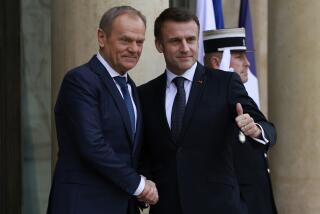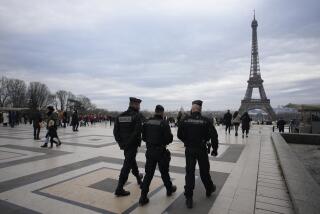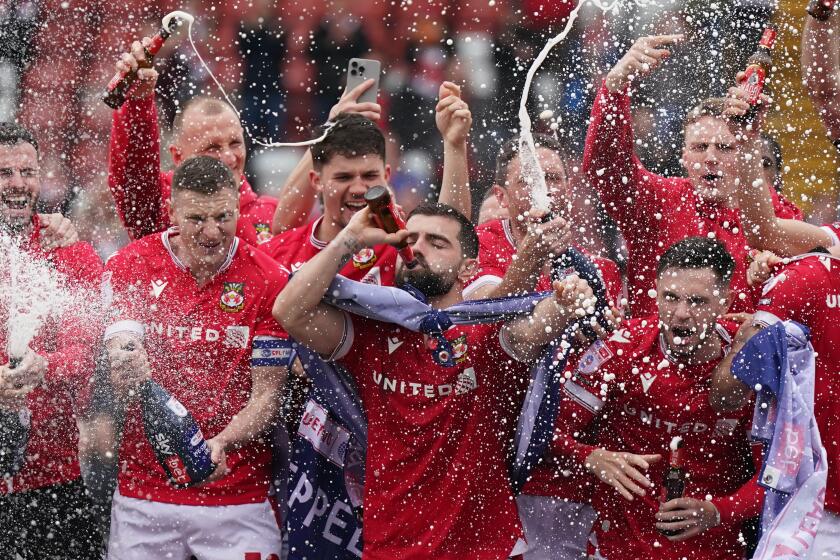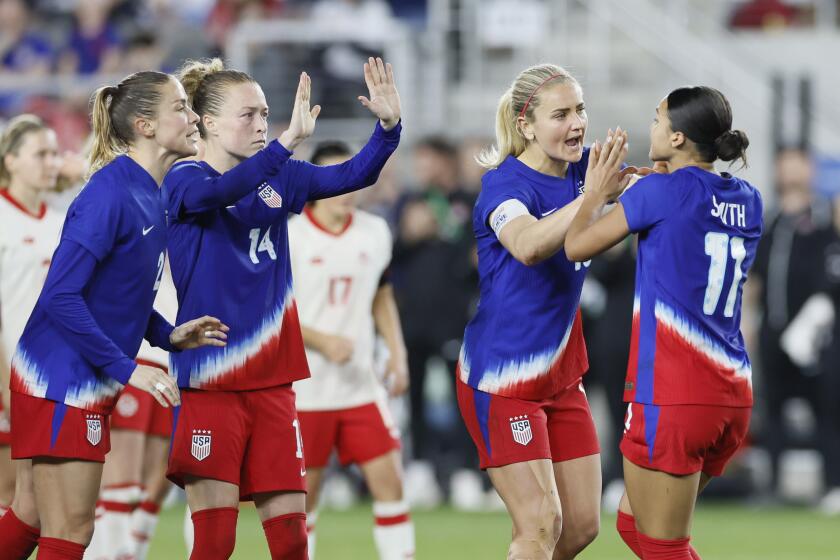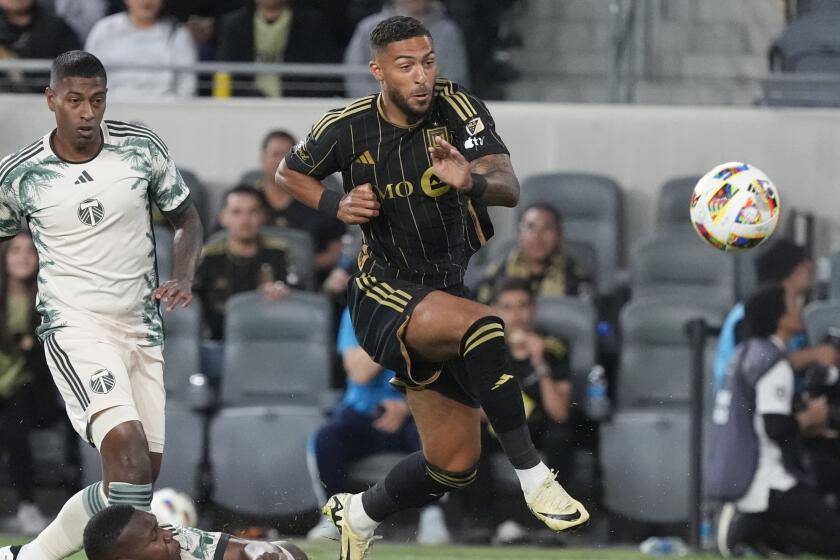Euro violence is a warning for 2018 World Cup
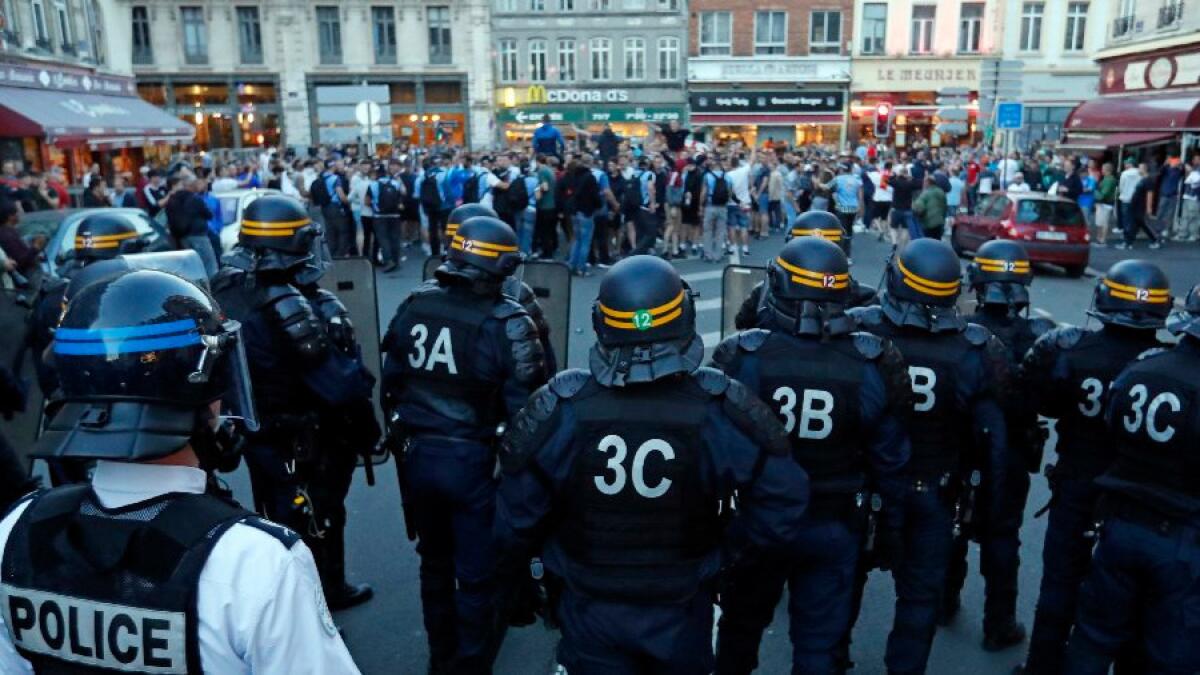
Terrorism was the big fear facing the European Championships. Which is why the governments of the U.S., England and Germany, among others, warned its citizens about traveling to France for the monthlong soccer tournament.
Sadly, two weeks into the Euros those warnings have proven prescient. Even more sadly, however, is the fact those warnings misidentified the perpetrators of the attacks.
This time the violence was not the handiwork of individuals inspired by Al-Qaeda or the Islamic State but soccer hooligans inspired by nationalism. What was supposed to be a sporting competition has dissolved into anarchy.
While fans in this country were observing a moment of silence for the victims of the Orlando nightclub attack before Copa America Centenario games, “fans” in France were literally attacking nightclubs before Euro 2016 games.
See the most-read stories in Sports this hour »
The riots were reminiscent of the 1980s, when hooliganism was rampant in soccer. Those dark days appeared largely to have gone but in France, the violence started before the tournament did, with supporters from England and Russia clashing in the Mediterranean port city of Marseille.
Over the next 10 days dozens of people were hospitalized and dozens more arrested with supporters – you really can’t call them fans – from at least two countries jailed. Twenty Russians, including Alexander Shprygin, the leader of a Kremlin-backed supporters’ group, were ordered expelled from the country and two teams – Russia and England – were told they would be expelled from the competition unless the violence ceased.
But it didn’t.
German and Ukrainian supporters waged running street battles in Lille. There was a Russia-England rematch riot in the same city. Unprovoked French Ultras attacked Northern Irish supporters in Nice – France doesn’t even play in Nice – while Croatian hooligans threw eight flares on the field Friday in Saint-Etienne, injuring a steward and nearly blinding Croatian midfielder Ivan Perisic.
More flares were set off at the Russia-England game and at Saturday’s Iceland-Hungary game in Paris. How people managed to get explosive devices into stadiums on high alert for terrorists remains unexplained, but the violence has so overwhelmed French police and security personnel, they have called on neighboring countries for help.
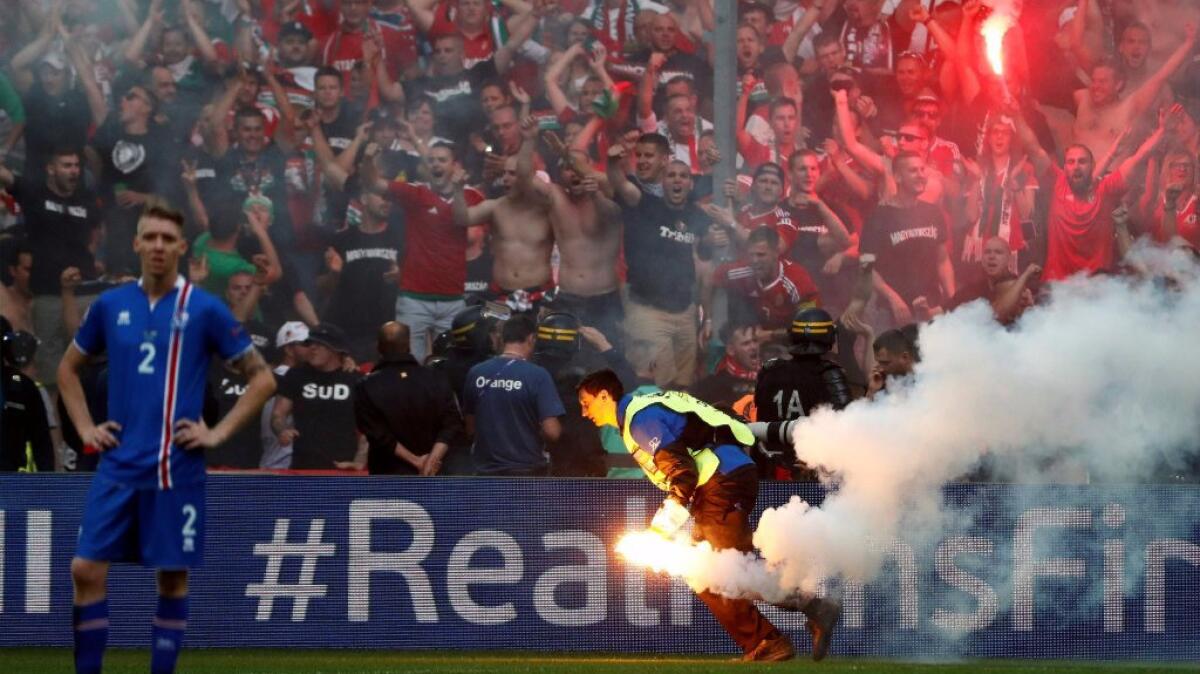
Not everyone has been as supportive. Igor Lebedev, a far-right member of the Russian parliament, praised the hooligans on Twitter.
“I don’t see anything wrong with the fans fighting,” he wrote. “Quite the opposite. Well done lads, keep it up!”
Although a Kremlin spokesman said “riots” involving Russian fans were “absolutely unacceptable,” Russian President Vladimir Putin waited a week to personally condemn the behavior of Russian fans. And even then he took a backhanded swipe at French authorities and English fans.
Speaking Friday at an economic forum in St. Petersburg, Putin said “fighting between Russian fans with the English, that is a disgrace.” But, he added to laughter and applause, “I don’t know how 200 Russian fans could beat several thousand of the British.”
The views of Lebedev and Putin were especially troubling since Russia will play host to international soccer’s next major tournament, the 2018 World Cup. Authorities there should have adopted a zero-tolerance policy regarding the disruptions; instead the best they could manage was a mild rebuke, in Putin’s case, or open support in the case of Lebedev.
That will only embolden the nationalist Russian hooligans, whom French prosecutor Brice Robin said were “well prepared for ultra-rapid, ultra-violent action” and “are extremely well-trained people.”
That should concern the good folks at FIFA – we’ll give the new regime the benefit of the doubt for now – who are counting on a trouble-free World Cup to help cleanse its image. Instead, it’s taking the most important event in global sports to a country already rife with corruption, homophobia and racism.
To that ugly list you can now add unchecked, state-supported hooliganism.
“In nine out of 10 cases, football fans go to games to fight, and that’s normal,” Lebedev, a member of the Russian soccer union’s executive committee, said in an interview with Russian journalists. “The lads defended the honor of their country and did not let English fans desecrate our motherland. We should forgive and understand our fans.”
The thugs and their enablers should not have the last word in this debate, though. So consider how Ireland’s “Green Army” supporters group reacted to the Euro violence.
In Bordeaux, where Ireland’s hopes of advancing to the second round were dashed Saturday in a 3-0 loss to Belgium, the Green Army, armed with plastic bags, swept down city streets and parks picking up trash. When the group came across an elderly couple with a flat tire, they stopped and changed it. And when a French cyclist grew frustrated when his route was blocked by a huge crowd, the Irish fans picked him up and carried him and his bicycle past the bottleneck.
The random acts of kindness have become a hit on social media and stand in stark contrast to the ugliness peddled by the likes of Lebedev. Unfortunately the Irish will be going home soon.
And the World Cup will be going to Russia soon afterward.
Follow Kevin Baxter on Twitter @kbaxter11

